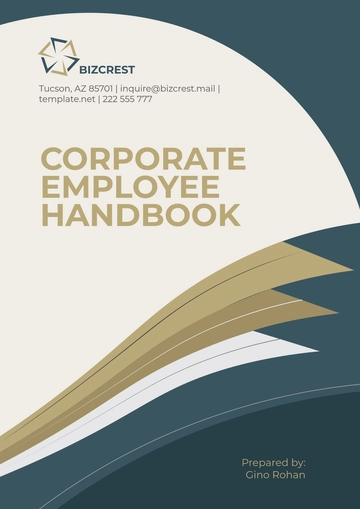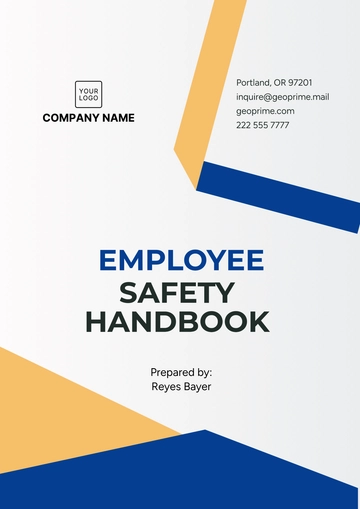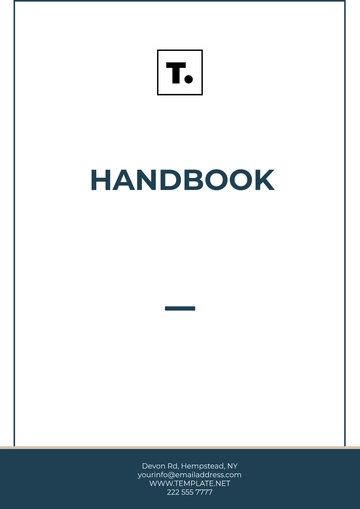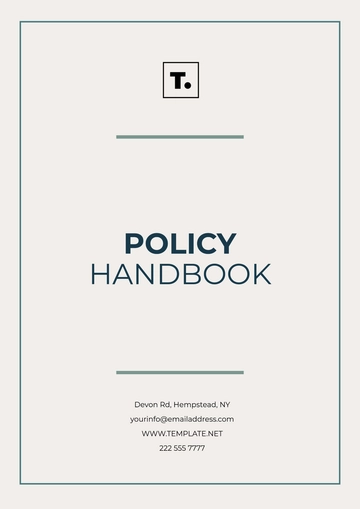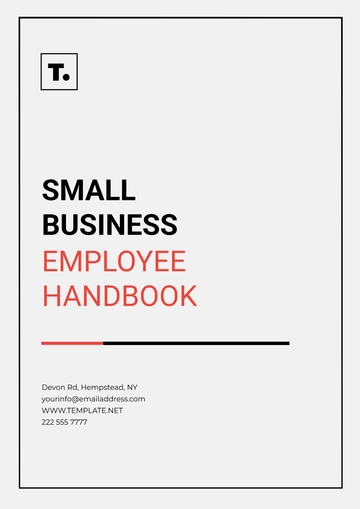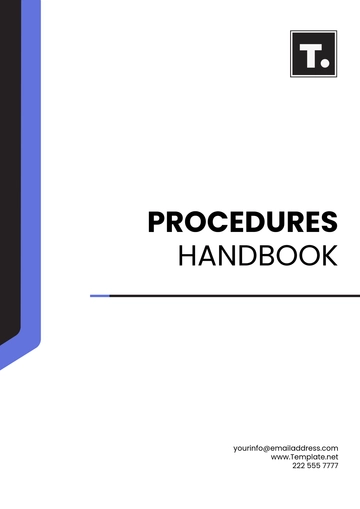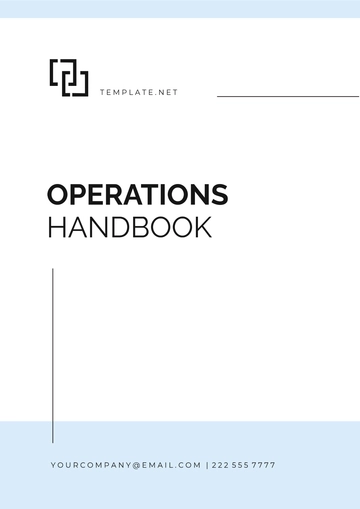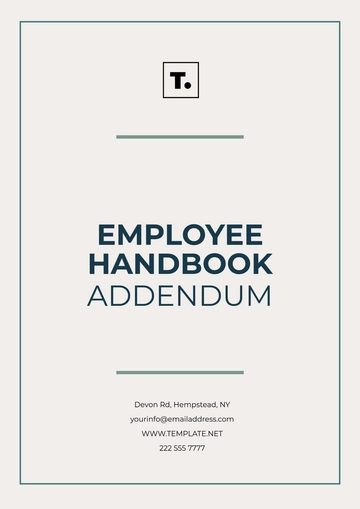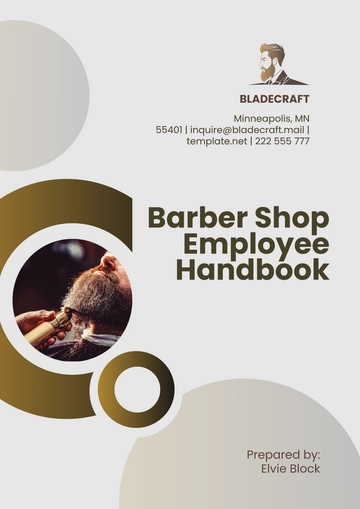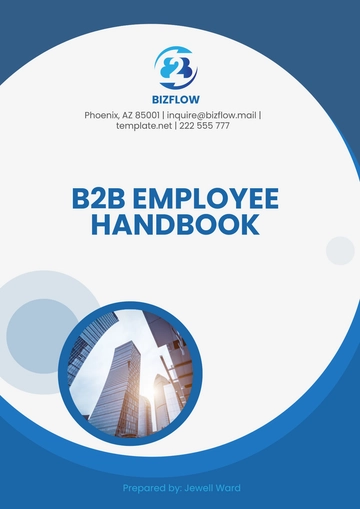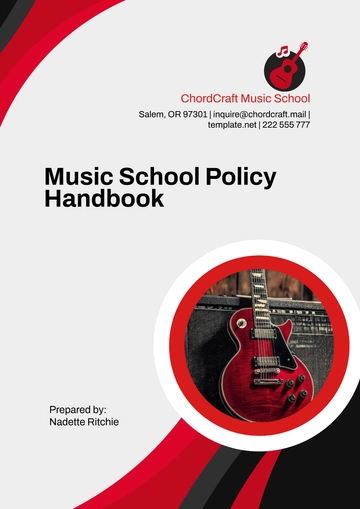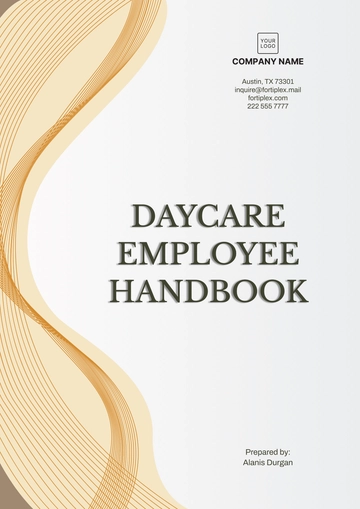Free Marketing Influencer Handbook
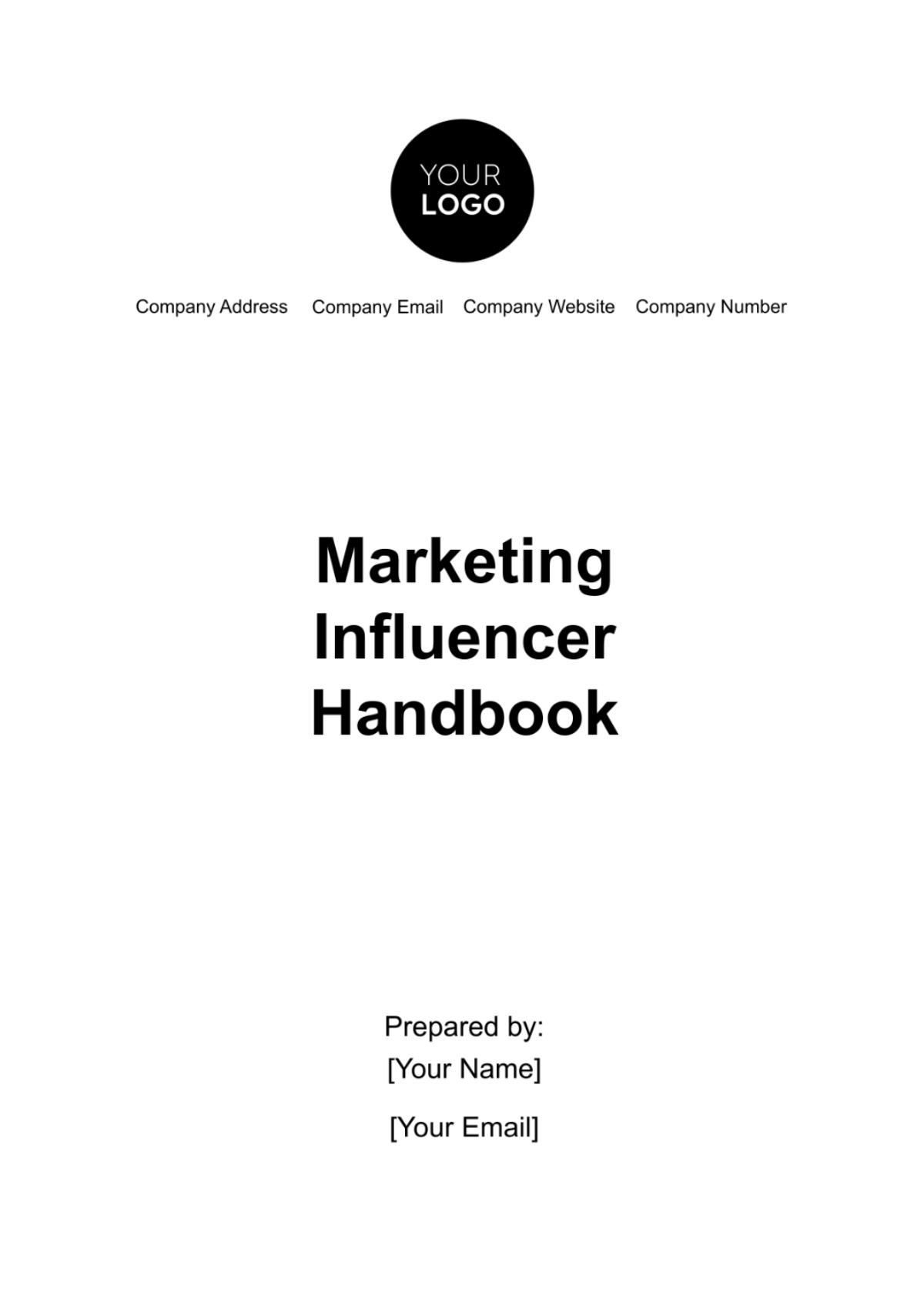
I. Introduction
Welcome to the [Your Company Name] Marketing Brand Curriculum. This comprehensive guide is designed to empower marketing professionals with the knowledge and strategies needed to build and nurture a strong brand presence. In this document, you'll find a wealth of information, templates, and guidelines tailored to the ever-evolving landscape of marketing in the United States. As you embark on this educational journey, feel free to customize and adapt the content to suit your unique needs and goals. Let's dive into the world of marketing excellence!
II. Understanding Influencer Marketing
Influencer marketing is a dynamic strategy that capitalizes on individuals or entities with devoted online followings. These influencers, such as social media personalities, bloggers, or experts, can significantly enhance brand visibility and trust. In the U.S., compliance with Federal Trade Commission (FTC) regulations is vital for transparency and authenticity. In this curriculum, marketing professionals will delve into the nuances of influencer collaboration, including the identification of suitable influencers and the cultivation of strong, ethical partnerships.
III. Setting Objectives and Strategy
In the ever-evolving landscape of marketing, setting clear objectives and crafting a well-defined strategy is the cornerstone of success. This section guides marketing professionals through the crucial steps of aligning their efforts with organizational goals and creating effective marketing strategies:
Defining Marketing Goals → IdentifyingTarget Audience → Selecting the Right Influencers
In the U.S. market, it's essential to incorporate legal and ethical considerations into your strategy, ensuring full compliance with marketing regulations.
IV. Finding and Engaging Influencers
Identifying and collaborating with the right influencers is the heart of successful influencer marketing campaigns. This section dives into the process of finding, approaching, and building strong relationships with influencers.
Researching Potential Influencers: Begin by conducting thorough research to identify potential influencers in your niche. Utilize influencer discovery tools, social media platforms, and industry-specific networks. Assess influencers based on their audience size, engagement rates, content quality, and alignment with your brand values.
Approaching and Building Relationships: When reaching out to influencers, craft personalized and compelling messages that highlight the mutual benefits of collaboration. Be transparent about your goals and expectations. Building a genuine rapport with influencers is essential, as it fosters trust and ensures authentic content creation.
Legal and Ethical Considerations: In the U.S., influencer marketing must adhere to FTC guidelines. Ensure influencers disclose their partnerships with clear and conspicuous disclosures in their content. Draft comprehensive contracts that outline deliverables, compensation, usage rights, and disclosure requirements to protect both parties legally.
V. Content Collaboration
Effective content collaboration between your brand and influencers is key to creating impactful influencer marketing campaigns. This section explores various aspects of working together to produce compelling content.
Collaborative Content Creation
Content Strategy: Define the overarching content strategy, including campaign goals, messaging, and themes.
Usage Rights: Establish agreements outlining the usage rights and ownership of created content.
Content Approval and Review
Review Process: Define a review process to ensure content aligns with brand guidelines and regulatory requirements
Feedback Loop: Maintain open communication with influencers for constructive feedback and revisions.
Legal and Ethical Considerations
FTC Compliance: Reiterate the importance of FTC compliance, including disclosure guidelines.
Contracts and Agreements: Emphasize the necessity of comprehensive contracts that specify deliverables, compensation, and disclosure requirements.
By successfully navigating content collaboration with influencers, marketing professionals can ensure that their campaigns deliver engaging and authentic content while adhering to legal and ethical standards, crucial for U.S. marketing compliance.
VI. Campaign Planning and Execution
Launching successful influencer marketing campaigns involves a step-by-step process to ensure effectiveness and efficiency. Follow these key steps to plan and execute your campaigns effectively:
VII. Measuring and Analyzing Results
Measuring the impact of your influencer marketing campaigns and deriving actionable insights is crucial for ongoing success and optimization. In this section, we explore the process of gathering and analyzing campaign data effectively.
Key Performance Indicators (KPIs): Begin by defining and prioritizing key performance indicators (KPIs) that align with your campaign objectives. These may include metrics like reach, engagement rate, click-through rate (CTR), conversion rate, and return on investment (ROI).
Tools for Measuring ROI: Leverage analytics and tracking tools to collect data on campaign performance. Popular platforms like Google Analytics and social media insights provide valuable information on website traffic, user behavior, and social engagement.
Analyzing Results: The chart below illustrates the performance metrics from a recent influencer campaign. It visually represents the campaign's reach, engagement, and conversion rates over time, providing a clear snapshot of its effectiveness.
4. Adjusting Strategies Based on Data: Analyze the collected data to gain insights into what worked and what didn't during your campaign. Identify trends, strengths, and areas for improvement. Use these insights to adjust your strategies for future campaigns, optimizing your approach based on real-world results.
VIII. Legal and Compliance
In the realm of influencer marketing, strict adherence to legal and ethical standards is not only advisable but essential. In the United States, the Federal Trade Commission (FTC) has established guidelines to ensure transparency and authenticity in marketing collaborations.
FTC Compliance: Learn how to comply with FTC guidelines, which require influencers to disclose their partnerships transparently. Discover the nuances of clear and conspicuous disclosures in influencer content to maintain trust with your audience.
Contracts and Agreements: Gain insights into crafting comprehensive contracts and agreements that protect both your brand and influencers. These documents should outline deliverables, compensation, usage rights, and adherence to disclosure requirements.
Ethical Practices: Explore ethical considerations and best practices that go beyond legal requirements, ensuring your influencer marketing campaigns maintain the highest standards of integrity.
IX. Case Studies
Case studies serve as invaluable educational tools, offering concrete evidence of influencer marketing's impact. They provide a unique window into real-world campaigns, showcasing strategies that achieved tangible results. By dissecting these success stories, marketing professionals can grasp the intricacies of effective influencer collaborations, gaining inspiration, and practical knowledge.
Case studies also illuminate the dynamic nature of influencer marketing, highlighting how different industries and niches leverage this strategy. They empower professionals to adapt and innovate, offering a roadmap to navigate the evolving landscape of influencer-driven marketing with confidence and proficiency.
X. Emerging Trends and Technologies
In the ever-evolving landscape of influencer marketing, keeping abreast of the latest trends and technologies is vital for staying competitive. This section explores these emerging aspects:
Current Trends in Influencer Marketing
Micro-Influencers: Discover the power of collaborating with micro-influencers to tap into highly engaged, niche audiences.
Authentic Storytelling: Learn how authenticity and genuine storytelling are driving more impactful influencer campaigns.
Niche Platforms: Explore the rise of niche social media platforms and how they can be harnessed for effective targeting.
The Role of Social Media Platforms
Platform Dynamics: Understand the ever-changing dynamics of major social media platforms like Instagram, TikTok, and YouTube.
Emerging Features: Stay updated on new features and tools within these platforms to enhance your influencer marketing strategies.
Navigating Algorithm Changes: Learn strategies to adapt to algorithm changes and maintain visibility.
Innovations in Influencer Collaboration
AI-Powered Tools: Explore how AI-driven tools are revolutionizing influencer discovery and audience analysis.
Data Analytics: Understand the role of data analytics in measuring campaign impact and optimizing strategies.
XI. Resources and Tools
In the dynamic world of influencer marketing, having access to the right resources and tools can make all the difference in executing successful campaigns. This section introduces essential resources and tools to help you streamline your influencer marketing efforts.
Influencer Marketing Platforms
Explore influential marketing platforms that simplify influencer discovery, management, and performance tracking. These platforms offer comprehensive databases of influencers, campaign management tools, and analytics to optimize your strategies.
Analytics and Tracking Tools
Discover advanced analytics and tracking tools that provide deep insights into campaign performance. From social media analytics to website traffic monitoring, these tools enable you to measure and analyze the impact of your influencer collaborations.
Legal and Compliance Resources
Access legal resources and compliance guides to ensure your influencer marketing campaigns align with regulatory standards, including FTC guidelines. Stay informed about the latest legal developments in the influencer marketing space.
XII. Conclusion
Influencer marketing is a dynamic and ever-evolving field, and it's essential for marketing professionals to stay informed and adaptable. This curriculum equips you with the knowledge, strategies, and tools needed to thrive in the world of influencer marketing. From setting objectives and engaging influencers to measuring results and embracing emerging trends, you're now well-prepared to navigate this exciting landscape, build meaningful collaborations, and drive your brand's success.
- 100% Customizable, free editor
- Access 1 Million+ Templates, photo’s & graphics
- Download or share as a template
- Click and replace photos, graphics, text, backgrounds
- Resize, crop, AI write & more
- Access advanced editor
Introducing the Marketing Influencer Handbook Template - your comprehensive guide to mastering influencer marketing strategies. Crafted for marketing professionals, this editable resource offers a step-by-step roadmap, legal compliance insights, case studies, and essential tools. Elevate your influencer campaigns and stay ahead of industry trends with this invaluable template.
